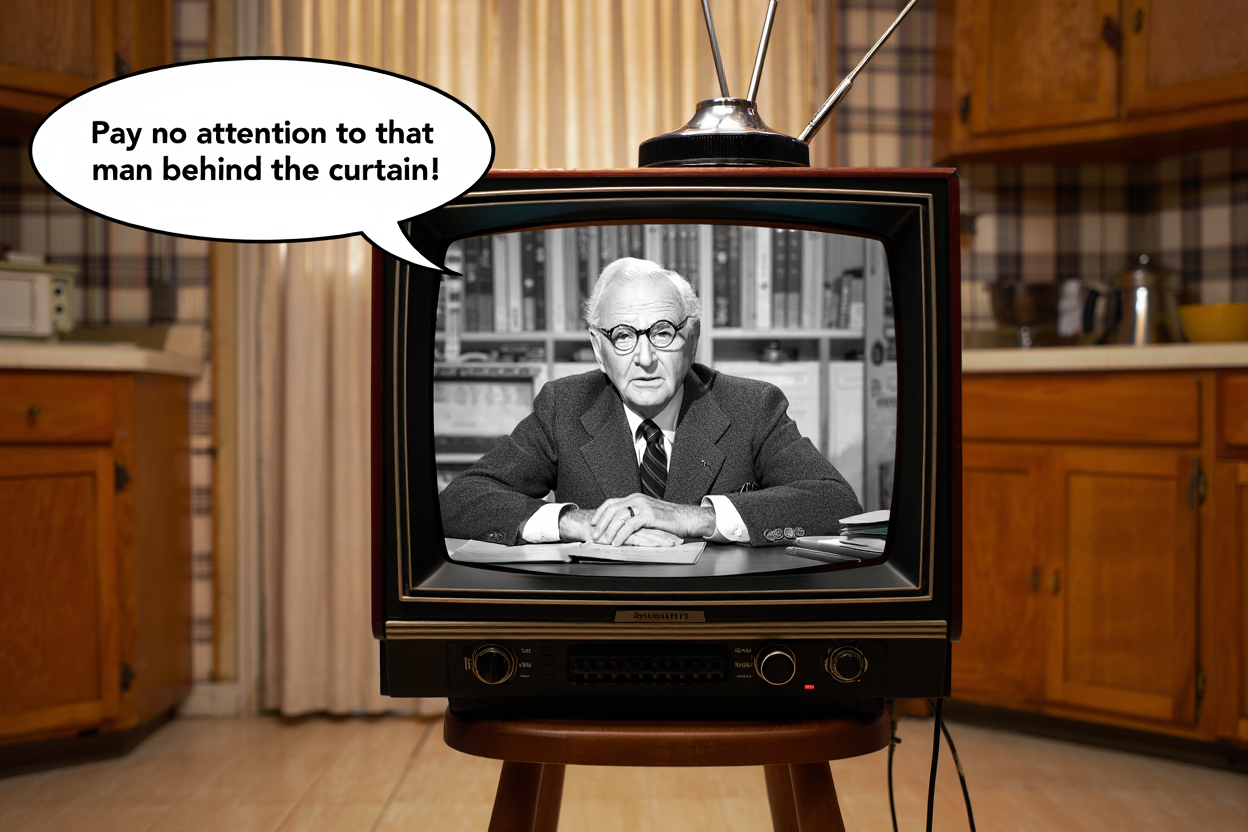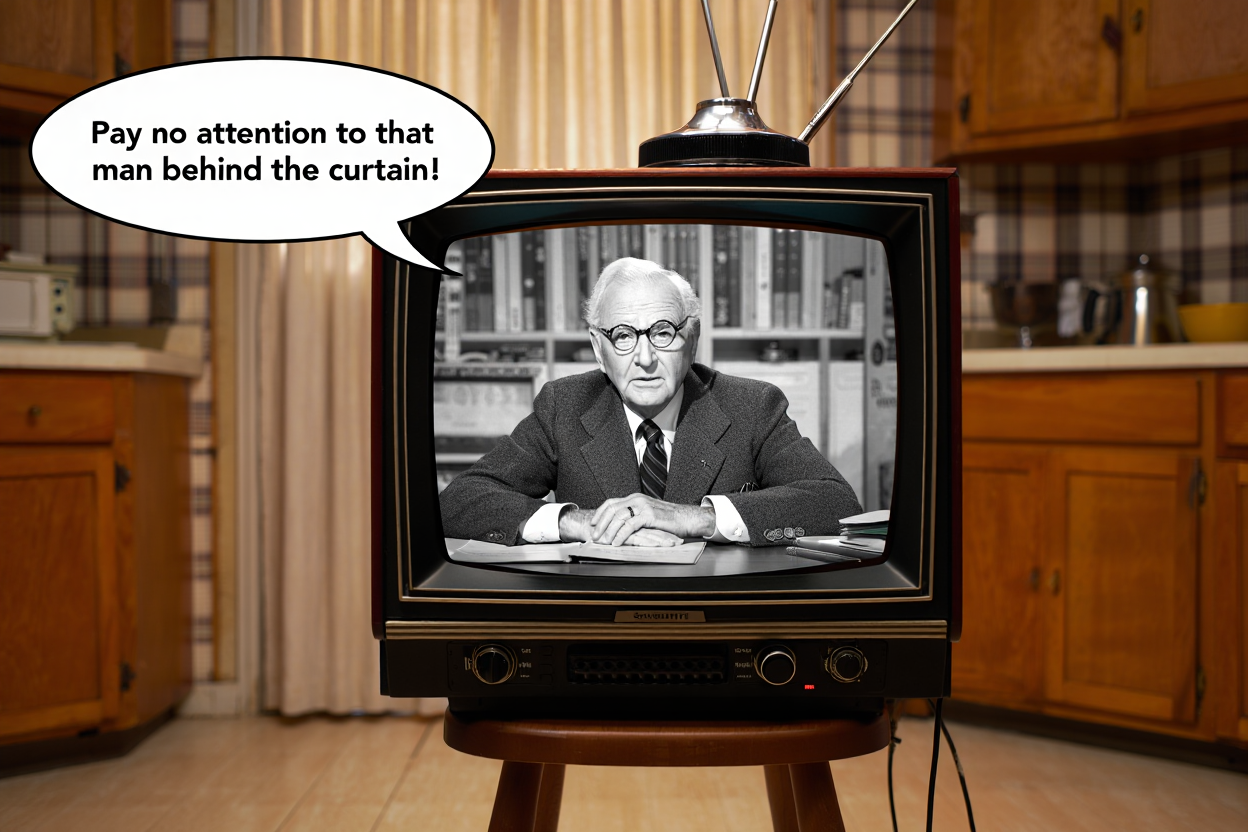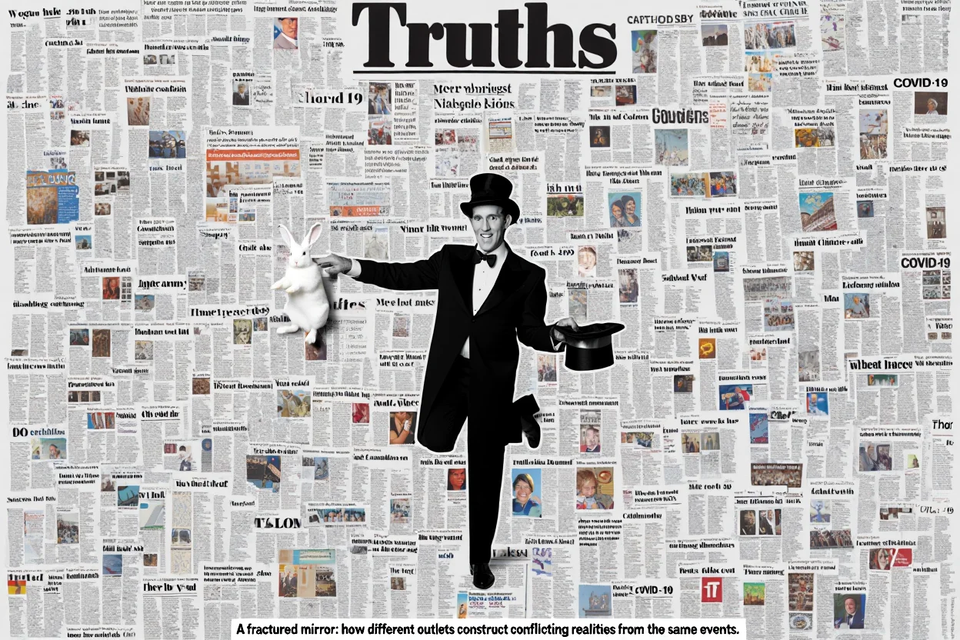Journalism in the Age of Factionalism and AI: Why the Old Paradigm is Failing
Journalism is at a crossroads: clinging to objectivity while politics, AI, and psychometrics reshape how people perceive truth. To stay relevant and protect democracy, the press must shift from monologue to dialogue; we must begin by mapping belief systems, not just reporting facts.

By Dennis Stevens, Ed.D.
In today’s political climate, journalism is grappling with an epistemic crisis. While the traditional role of the press has been to report objective facts, this mission is proving increasingly inadequate in a world shaped by divergent belief systems, factional loyalty, and algorithmically engineered narratives. What’s needed now is not a recommitment to monolithic "truth," but a shift in how journalism understands its role in a democratic society.

Factionalism and Perception: The Roots of Division
American politics has always been about competing interests, but today’s information ecosystem amplifies these differences into echo chambers. Risk and blame are perceived through factional lenses. This divergence doesn’t merely shape opinion—it shapes the reality people inhabit.
Yet mainstream journalism often resists acknowledging this. Trained in the pursuit of neutrality, many journalists treat conflicting perspectives as distortions rather than expressions of legitimate worldview differences. This leads not to clarity but to alienation.
The Fairness Doctrine and Its Legacy
For a brief period in American history, the media was required to present contrasting views. The Fairness Doctrine (1947–1987) mandated that broadcasters present competing viewpoints on matters of public concern. Its repeal was predicated on the idea that such regulation chilled free speech. But with the rise of partisan media and algorithmic curation, the loss of enforced balance has contributed to the very fragmentation the Doctrine once tried to remedy.
When regulation touches on fairness in media, the issue becomes inherently political. Law, after all, emanates from the sovereign. Recommendations can be ignored. Only power creates enforceable norms.
Journalism and the Power Gap
The media now faces a fundamental choice: protect corporate interests and audience loyalty, or adapt to serve democratic integrity. The former often wins. But doing what’s profitable is not the same as doing what’s right for the public. Journalism needs to grapple with this moral dissonance.
In a democracy, the faction that wins governs—until power shifts. Journalism should not endorse a side, but neither can it pretend there is no contest. To uphold democratic function, journalism must become a forum for the structured engagement of opposing worldviews, not an arbiter that silences some and amplifies others.
The Danger of Single Narratives
Single narratives are inherently dangerous. They erase minority perspectives, obscure power dynamics, and foster ideological rigidity. Divergent interests create divergent truths. The goal of journalism should be to hold these narratives in tension, creating dialogue rather than monologue.
Enter AI and Psychometrics
Here lies the future journalism has barely begun to understand: belief is not purely rational. Advances in artificial intelligence and the science of psychometrics reveal how human cognition is shaped by emotion, identity, and algorithmic reinforcement.
Political campaigns, marketing firms, and PR professionals already exploit these insights. They game the belief systems of target audiences with surgical precision. Meanwhile, journalism largely clings to outdated epistemologies.
To catch up, news organizations must begin to use the very tools now used against them. Psychometric data and AI can help journalists understand why people believe what they believe—and how to create reporting that reaches across perceptual divides without sacrificing rigor.
Journalism as a Civic Technology
It is time to reimagine journalism not just as a profession, but as a form of civic technology. Its role is not only to inform but to facilitate the interaction of competing beliefs within a shared democratic space. This demands new tools, new ethics, and new humility.
In a fractured world, the mission is not to restore a lost objectivity, but to illuminate the structure of belief itself. Only then can journalism begin to rebuild the trust and relevance it so desperately seeks.




